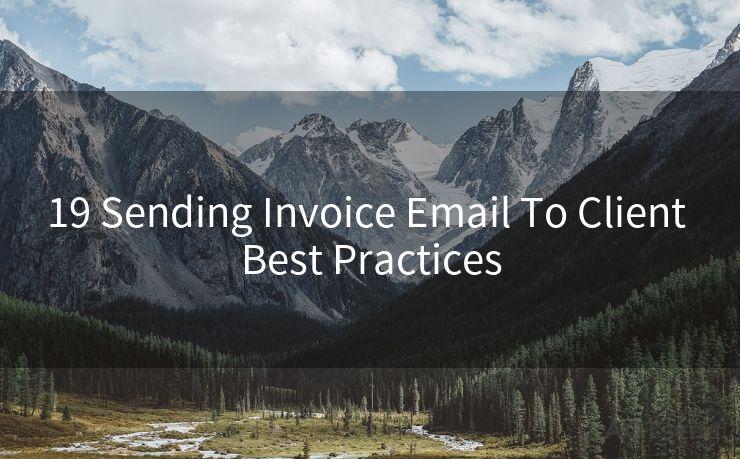19 Sending Invoice Email To Client Best Practices




When it comes to billing and invoicing, communication with clients is crucial. Sending invoice emails is not just about delivering a document; it's about maintaining professionalism, clarity, and efficiency. Here are 19 best practices to keep in mind when emailing invoices to your clients.
1. Use a Clear and Professional Subject Line
The subject line of your email should be direct and informative. For example, "Invoice #12345 for Project XYZ" immediately tells the recipient what the email contains.
2. Personalize the Greeting
Start your email with a personalized greeting, addressing the client by name. This adds a touch of familiarity and respect.
3. Summarize the Invoice
Provide a brief overview of the invoice, including the invoice number, date, and the services or products billed.
4. Attach the Invoice as a PDF
PDFs are universally readable and ensure that the invoice format remains consistent across different devices and operating systems.
5. Include Payment Details
Clearly state the payment terms, including the due date, payment methods accepted, and any late payment penalties.
6. Provide Contact Information
Include your contact details or a link to your support team in case the client has any questions or concerns about the invoice.

7. Use a Professional Email Template
Maintaining a consistent and professional look across all your invoice emails enhances your brand image.
8. Proofread and Double-Check
Ensure there are no typos or errors in your email. Professionalism is key in all business communications.
9. Send a Test Email to Yourself
Before sending the invoice to the client, send a test email to yourself to check the layout, attachments, and links.
10. Consider Timing
Avoid sending invoices at inconvenient times, like late at night or early in the morning.
11. Follow Up Appropriately
If payment is not received by the due date, send a polite reminder email.
12. Use Secure Methods for Sensitive Information
If the invoice contains sensitive information, consider using encrypted email or a secure file-sharing platform.
13. Optimize for Mobile Devices
Ensure that your email and invoice are mobile-friendly, as many clients may check their emails on the go.
14. Thank the Client
Express gratitude for the business relationship and the opportunity to provide services or products.
15. Avoid Unnecessary Attachments
Only attach relevant documents to avoid confusing or overwhelming the client.
16. Use Clear Call-to-Action Buttons
If possible, include prominent call-to-action buttons for quick and easy payment.
17. Keep It Simple
Avoid using complex language or jargon. Stick to plain, straightforward English.
18. Track Your Emails
Utilize email tracking tools to see if and when your invoice email has been opened.
19. Stay Compliant
Ensure that your invoicing practices comply with local tax and business regulations.
By following these best practices, you can ensure that your invoice emails are professional, efficient, and effective. Remember, communication is key in maintaining a positive business relationship with your clients.
🔔🔔🔔
【AOTsend Email API】:AOTsend is a Managed Email Service for sending transactional emails. Support Email Types: reminders, authentication, confirmations, notifications, verification codes, invoices, password resets, account activations, billing statements, two-factor authentication (2FA), and one-time passwords (OTP) emails, etc. $0.28 per 1000 Emails. 99% Delivery, 98% Inbox Rate.
You might be interested in:
Why did we start the AOTsend project, Brand Story?
What is a Managed Email API, How it Works?
Best 25+ Email Marketing Platforms (Authority,Keywords&Traffic Comparison)
Best 24+ Email Marketing Service (Price, Pros&Cons Comparison)
Email APIs vs SMTP: How they Works, Any Difference?




Scan the QR code to access on your mobile device.
Copyright notice: This article is published by AotSend. Reproduction requires attribution.
Article Link:https://www.mailwot.com/p4652.html



